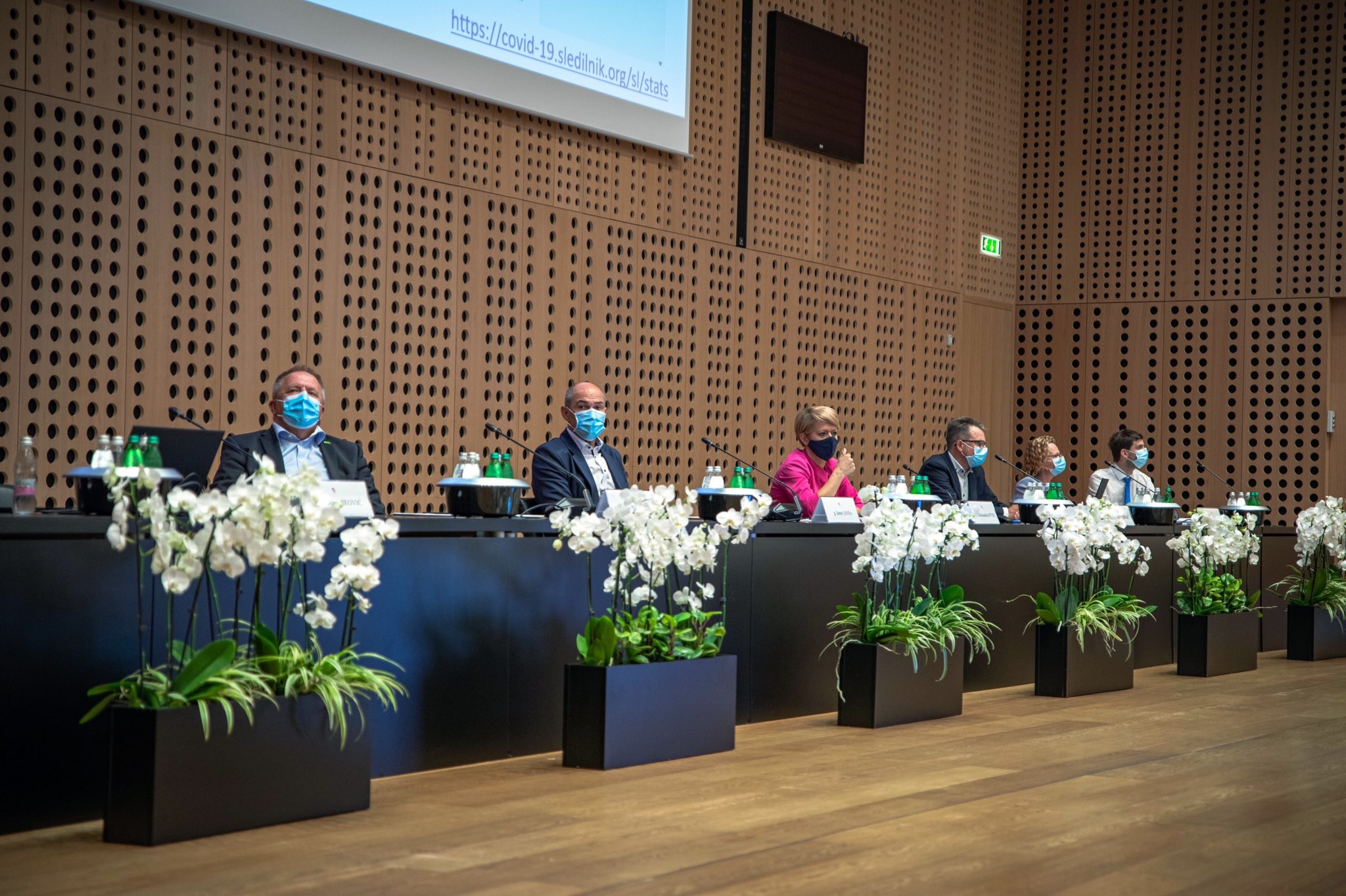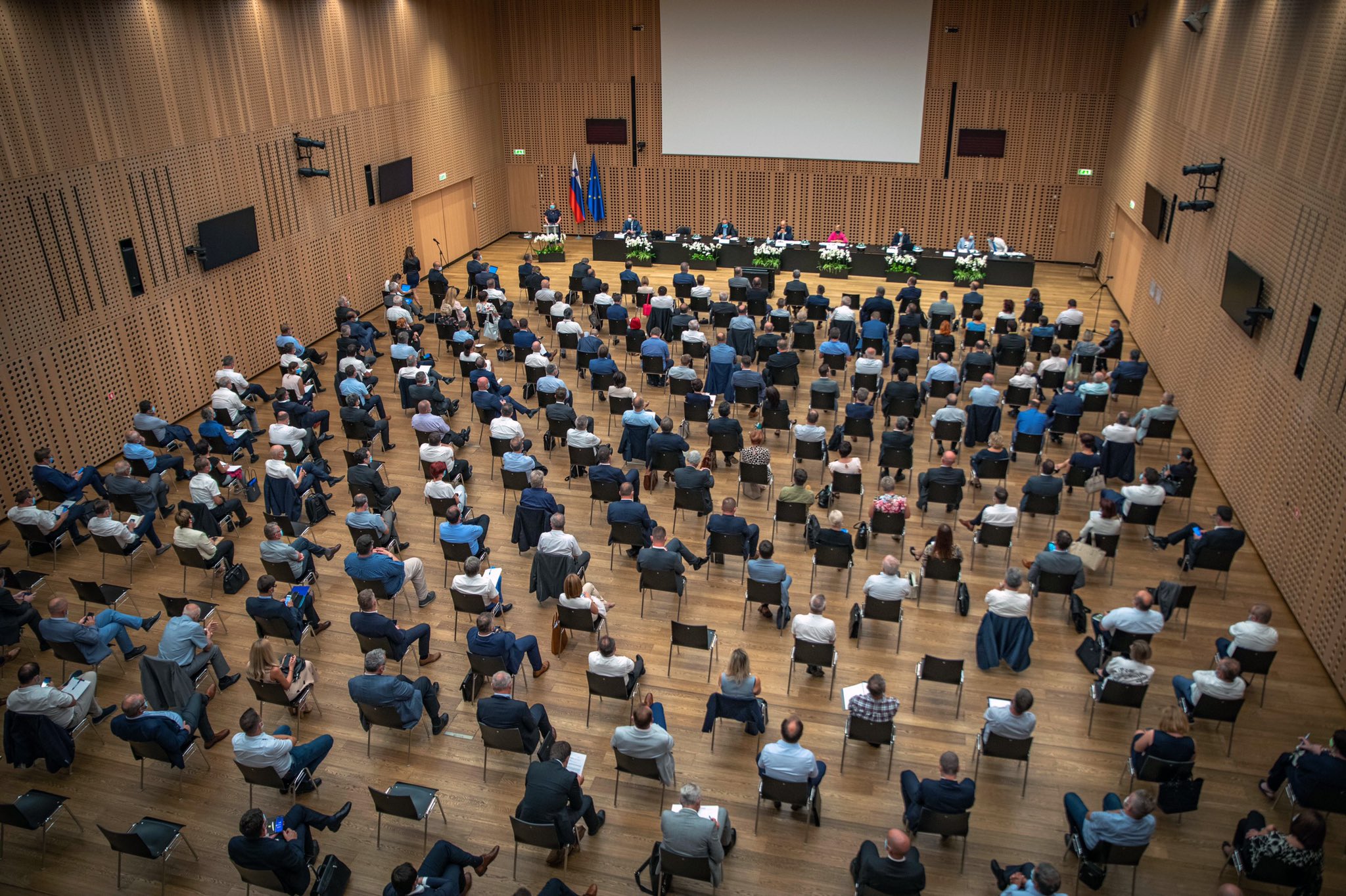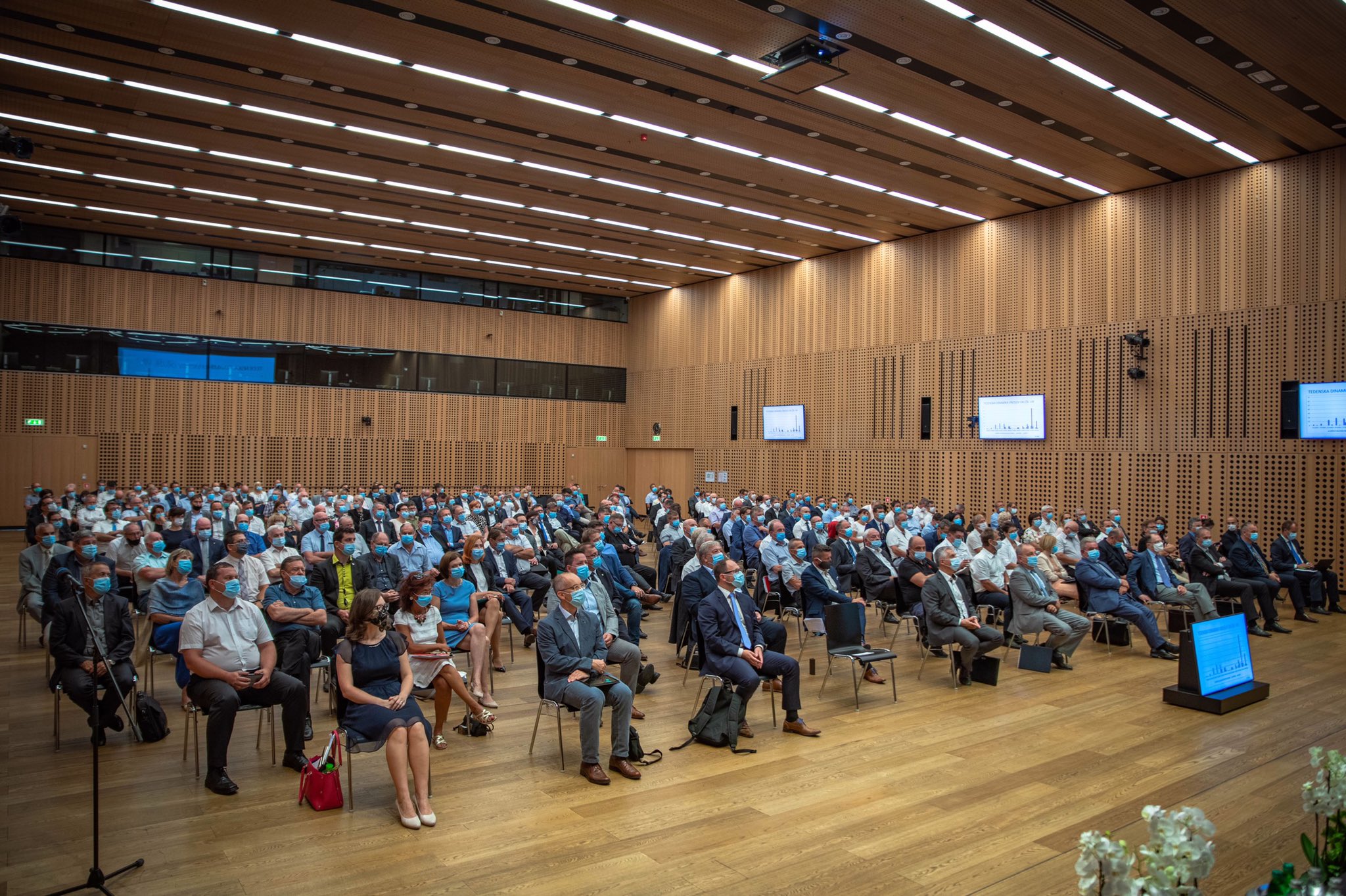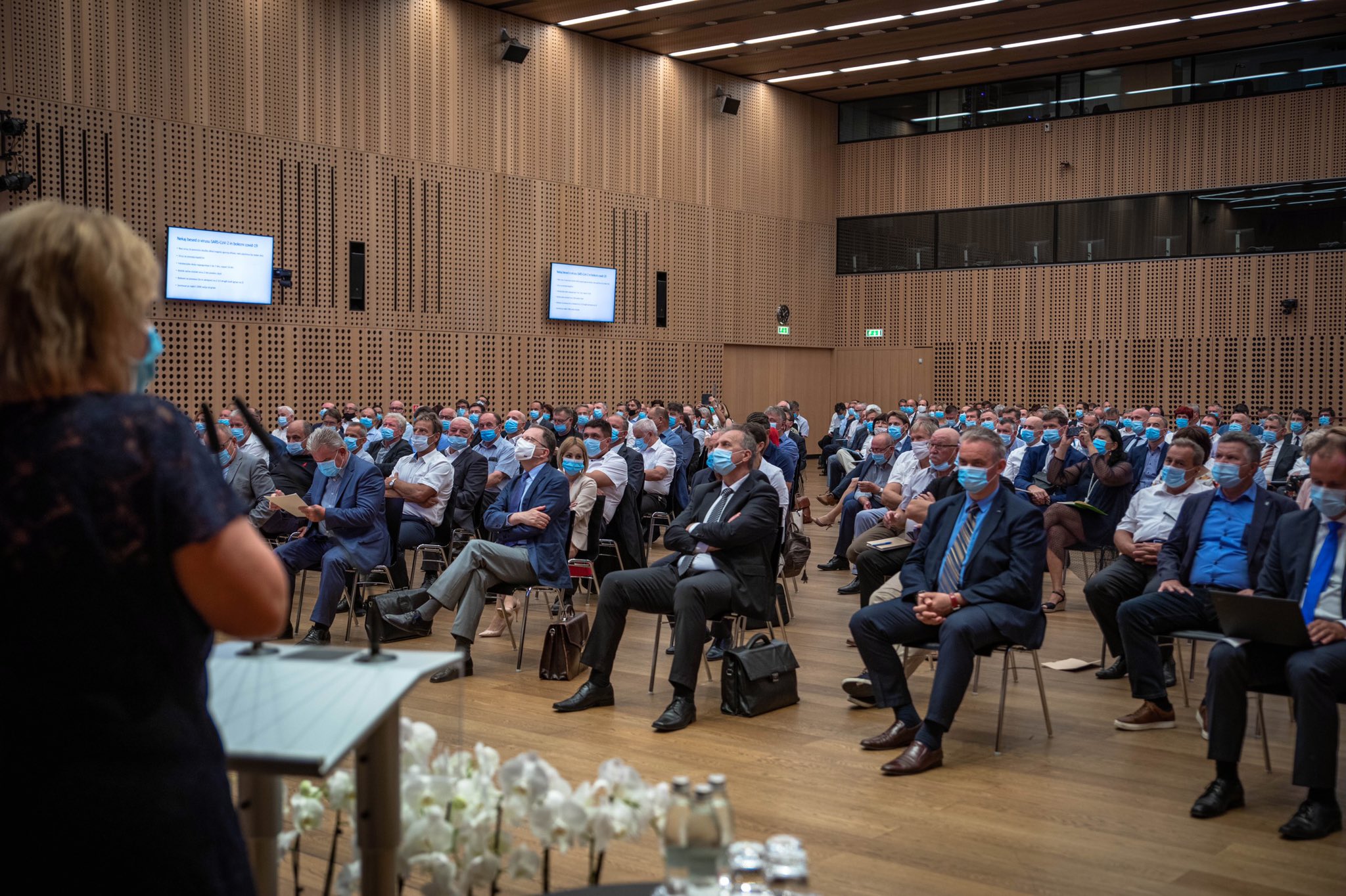On August 20th, 2020, Prime Minister Janez Janša organized a consultation with Mayors and the representatives of the regional development agencies in Brdo pri Kranju, where they discussed the possibilities of development and investment of the European funds. The meeting was also attended by the Minister of Development and European Cohesion Policy, Zvonko Černač. The Government Office for Development and European Cohesion Policy posted the following announcement on Twitter: “Today, Minister @ZCernac is attending a consultation with the municipalities and the development agencies, on the European funds that Slovenia will allocate for the recovery from the #COVID19 epidemic. After the consultation is over, the Minister will make a statement for the media, which you will be able to watch on the Facebook page of the Government of the Republic of Slovenia – @vladaRS.”
In regard to the consultation with the Mayors and the RDA (regional development agencies), Prime Minister Janez Janša also announced that municipalities are the main factor in ensuring the quality of life and development. They also discussed the challenges of the epidemic in the autumn. “A quality debate with realistic proposals,” the Prime Minister concluded.
At the end of Zvonko Černač‘s lecture, it was clearly emphasized that no one should be left out, and no part of Slovenia should be neglected. Ensuring that the projects are feasible and within the framework of existing priorities, and above all, that the whole of Slovenia will be consistently developing, will be a special challenge.
According to STA, the attendees of the meeting emphasized that Slovenia will have access to 12 billion euros until 2030, under three different mechanisms. At the same time, the Mayors, who are explicitly enthusiastic about the promised de-bureaucratization, as well as better communication, spoke about the concrete difficulties in preparing projects. Minister Černač even spoke about the four mechanisms or the financial frameworks.
As part of this, as much as 1.8 billion euros must be drawn by the end of 2023, from the expiring financial perspective, and in addition, another 312 million euros are waiting in the recovery fund. As part of the latter, “the existing operational program will be changed by the end of September and will provide the basis for drawing the funds as soon as possible, especially in the areas of strengthening the healthcare systems, care for the elderly, youth employment and job retention, and providing working capital for the companies.”
“Next week, the government will adopt the starting points of the plan or national program of projects and measures, for which Slovenia will allocate funds from the European package for the recovery of the EU after the corona crisis. Thus, the first concrete proposal from this act will be made in October.” In the next seven-year financial perspective, another 4.5 billion euros will be made available to Slovenia.
This includes another 350 million euros in cohesion funding, which has been further negotiated and is earmarked for the western region, as the largest outage was reported in this region. The third package of the already mentioned funds contains 5.5 billion euros from the fund, which is intended for the recovery, as well as strengthening the resilience.
In accordance with the rules, these funds must be spent by the end of 2026. “Thus, Slovenia will have 12 billion euros at its disposal in ten years, of which 3.6 billion euros are loans.”
Černač pointed out that they agreed with the mayors that they have a great opportunity and responsibility to make up for what was missed, with the mentioned funds, as well as to carry out the appropriate structural reforms that have not been carried out in the past, and to implement projects on many areas. Among the priorities, he also highlighted the importance of digital and green transformation.
“In preparation for today’s conference, the ministries submitted the investment initiatives in the amount of 10.8 million euros, and the municipalities submitted the initiatives which amounted to 11 million euros. Next month, an evaluation or review of all projects will be made in terms of the possibility of their placement in one of the mentioned financial frameworks. “
In order to achieve the set goals, the participation of all stakeholders will be required. At the conference, many Mayors had also presented concrete problems they are facing. They are very pleased with the promised de-bureaucratization, the simplification of procedures for obtaining building permits, and improved communication for the preparation of projects and the approval of co-financing.
As is known, at the end of March, the Government of the Republic of Slovenia adopted a Decree on a temporary general prohibition of movement and public gathering of people in public places and areas in the Republic of Slovenia, and the prohibition of movement outside municipalities of permanent or temporary residence of the citizens.
In order to contain and gain control of the SARS-CoV-2 epidemic (COVID-19), the decree further prohibited: movement and gathering of people in public places and areas, access to public places and areas, movement outside the municipality of permanent or temporary residence, unless the decree provided otherwise.
Prime Minister Janša recently achieved great success for Slovenia and was satisfied with the results of the marathon negotiations in Brussels. Namely, Slovenia remains a net beneficiary of funds from the European budget.
From the entire aid package for the reconstruction of Europe after the COVID-19 pandemic, Slovenia can count on as much as 10.5 billion euros, of which 6.6 billion euros are grants.
“The goal is to create a good plan of spending the resources, to ensure economic spending and efficient management. If done properly, funds will go to the content that will have added value for the people. Namely, these are funds that come from the people, so they have to be returned to the people. We must not leave anyone aside, and no part of Slovenia must be neglected,” stressed Minister Černač.




